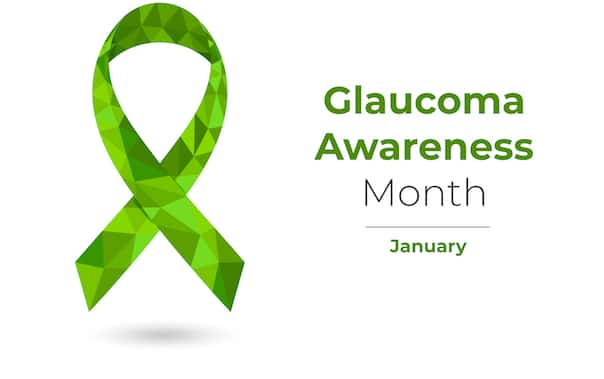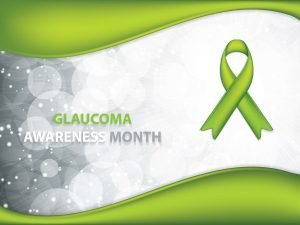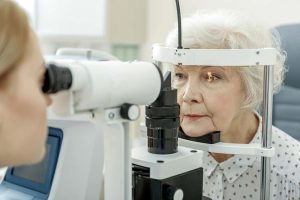January is National Glaucoma Awareness Month, which aims to spread awareness about the disease.
According to the Glaucoma Research Foundation, more than 3 million people in the United States currently have glaucoma; however, experts estimate that half of those with glaucoma don’t know they have it. The National Eye Institute projects this number of those with glaucoma will reach 4.2 million by 2030, a 58 percent increase. Glaucoma may not have any symptoms initially, but if left untreated, it can take away your vision over time.
Combined with our aging population, we can see an epidemic of blindness if awareness is not raised about the importance of regular eye examinations to preserve vision. The numbers prove the harsh reality about leaving glaucoma untreated — the World Health Organization estimates that 4.5 million people worldwide are blind due to glaucoma. Specifically, glaucoma is the leading cause of blindness among individuals 60 and older.
In this article Unicity Healthcare would like to share the information seniors and their caregivers should know about this dangerous eye condition, and how to protect your vision and maintain good eye health. Here’s what you can do to protect yourself and your senior loved ones from the threat of glaucoma.
What Is Glaucoma?
Glaucoma is a group of diseases that causes the fluid levels in the eye to rise, which in turn gradually steal sight, often without warning. Although the most common forms primarily affect the middle-aged and the elderly, glaucoma can affect people of all ages.
Vision loss is caused by damage to the optic nerve. This nerve acts like an electric cable with over a million wires. It is responsible for carrying images from the eye to the brain. Like many organs, the eye requires a balance of fluid to maintain its function. However, too much fluid in the eye causes a buildup of pressure around the optic nerve. If the pressure isn’t relieved, the optic nerve is irreparably damaged.
While there is currently no cure for glaucoma, medication or surgery can slow or prevent further vision loss. The appropriate treatment depends upon the type of glaucoma among other factors.
Types Of Glaucoma
There are two main types of glaucoma: primary open-angle glaucoma (POAG), and angle-closure glaucoma. These are marked by an increase of intraocular pressure (IOP), or pressure inside the eye. When optic nerve damage has occurred despite a normal IOP, this is called normal tension glaucoma.
Secondary glaucoma refers to any case in which another disease causes or contributes to increased eye pressure, resulting in optic nerve damage and vision loss.
Two Main Types Of Glaucoma: Primary Open-Angle Glaucoma and Acute Angle-Closure Glaucoma
In the most common form, there are virtually no symptoms. Vision loss begins with peripheral or side vision, so if you have glaucoma, you may not notice anything until significant vision is lost.
1. Primary open-angle glaucoma often goes unnoticed until significant vision loss has occurred. Most commonly, peripheral vision is affected first. Over time, central vision can also be impacted. Primary open-angle glaucoma is the most common type of glaucoma. It happens gradually, where the eye does not drain fluid as well as it should – and as a result, eye pressure builds and starts to damage the optic nerve. This type of glaucoma is painless and causes no vision changes at first.
Some people can have optic nerves that are sensitive to normal eye pressure. This means their risk of getting glaucoma is higher than normal. Regular eye exams are important to find early signs of damage to their optic nerve.
2. Acute angle-closure glaucoma occurs rapidly and presents a variety of symptoms:
- Sudden vision loss
- Eye or brow aches
- Headaches
- Eye redness
- Nausea
- Vomiting
- Dilated pupil
If you’re experiencing symptoms consistent with acute angle-closure glaucoma, it’s vital to schedule an eye exam immediately. Vision loss associated with glaucoma cannot be reversed, but treatment can slow the disease’s progression.
Many people with angle-closure glaucoma develop it slowly. This is called chronic angle-closure glaucoma. There are no symptoms at first, so they don’t know they have it until the damage is severe or they have an attack. Angle-closure glaucoma can cause blindness if not treated right away.
The Importance Of Regular Eye Exams
Regular eye exams are especially important for those at higher risk for glaucoma, and may help to prevent unnecessary vision loss. The best way to protect your sight from glaucoma is to get a comprehensive eye examination. Then, if you have glaucoma, treatment can begin immediately. Glaucoma is the second leading cause of blindness in the world, and is a leading cause of blindness for people over 60 years old. But blindness from glaucoma can often be prevented with early treatment.
Risk Factors
Those at higher risk include people of African, Asian, and Hispanic descent. Other high-risk groups include: people over 60, family members of those already diagnosed, diabetics, and people who are severely nearsighted.
Individuals with a family history of glaucoma are also at higher risk. If you have diabetes, hypertension, or take corticosteroids for health conditions, you may also be at higher risk. It’s important to visit your eye doctor twice per year, especially for those who have a higher than normal risk of getting glaucoma. This includes people who:
- are over age 40
- have family members with glaucoma
- are of African, Hispanic, or Asian heritage
- use long-term steroid medications
- have corneas that are thin in the center
- have high eye pressure
- are farsighted or nearsighted
- have had an eye injury
- have thinning of the optic nerve
- have diabetes, migraines, high blood pressure, poor blood circulation or other health problems affecting the whole body
If you’re over the age of 65, you should schedule regular eye appointments to check your eye pressure. It’s also important to stick to treatment plans if you have been diagnosed with the disease.
For many seniors, transportation to doctors’ appointments is a challenge. A trusted home care provider or assisted living facility can help your senior loved one get the care they need as they age.
Protecting Your Vision
While anyone can develop glaucoma, those who are overweight, diabetics, people with high blood pressure, seniors and African-Americans are at significantly higher risk to suffer from glaucoma-related vision loss.
Here’s what everyone can do to protect their eyesight:
- Watch Your Weight – Maintaining a healthy body weight lowers your risk of developing diabetes or high blood pressure which, in turn, decreases your likelihood of developing classic glaucoma or glaucoma-like retinopathy. Stick to a balanced diet and try to exercise regularly.
- Monitor And Control Your Blood Pressure – If you have hypertension, check your pressure every morning and every night (you can purchase a home blood pressure monitor at your local pharmacy). Keep a log of your pressures and see your doctor if your pressure spikes, or if you have chronically elevated pressures. Regular exercise, low-sodium and low-calorie diets can help you control your blood pressure and minimize the risk of developing hypertension-related glaucoma.
- Have An Annual, Thorough Eye Exam Ever Year – Make sure that you see your optometrist or ophthalmologist every year for an eye exam, and that he/she tests you specifically for glaucoma.
Treatment Options For Glaucoma
Most glaucoma can be managed with medication, some of which are as simple as taking eye drops. When medications aren’t working or the glaucoma is severe, doctors use a procedure called selective laser trabeculoplasty, which opens up the eye to drain. If lasers cannot be used or are ineffective, surgery can also help to create drainage by removing a piece of tissue from the eye or installing a mini-shunt (about the size of a grain of rice.)
In the United States, approximately 120,000 are blind from glaucoma, accounting for 9% to 12% of all cases of blindness. You can learn more about glaucoma at the Glaucoma Research Foundation’s website, where you can receive updates on glaucoma research, treatments, news and information.
Every year, countless people will suffer from this preventable vision loss. Thus, National Glaucoma Awareness Month is the perfect opportunity to gain information in order to help your loved ones understand what glaucoma is, as well as help to ensure they see their ophthalmologist regularly.
* * * * *
If you are concerned about a loved one and need further assistance, Unicity Healthcare is here to help. You can benefit from the expertise of our experienced Senior Advisors, and can inquire on how to seek help from Unicity’s qualified home care professionals to help ease the burden.
For more information please contact us at:
Email: info@unicity-ec.com
Explore our website: Unicity Healthcare https://www.unicity-ec.com/






